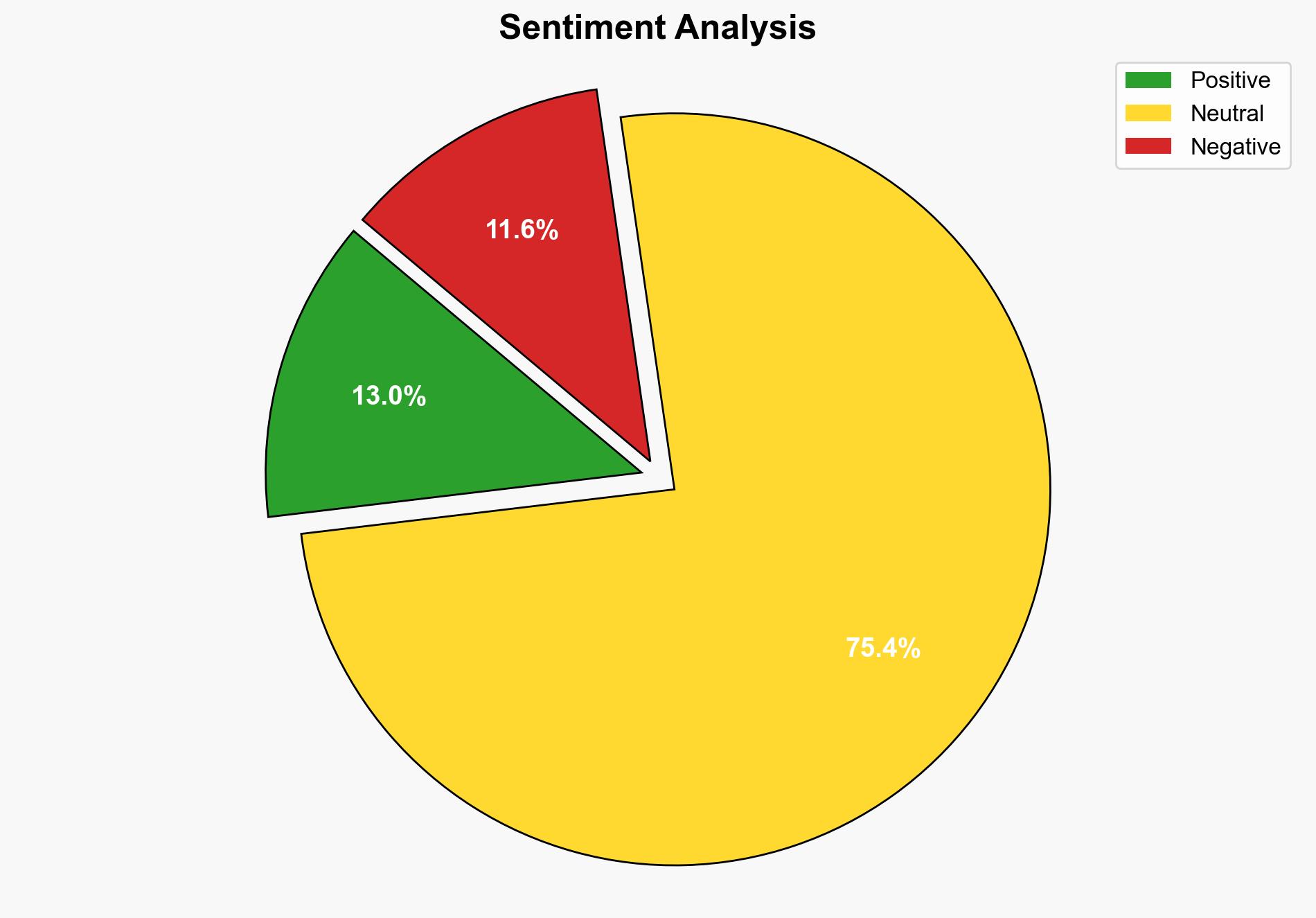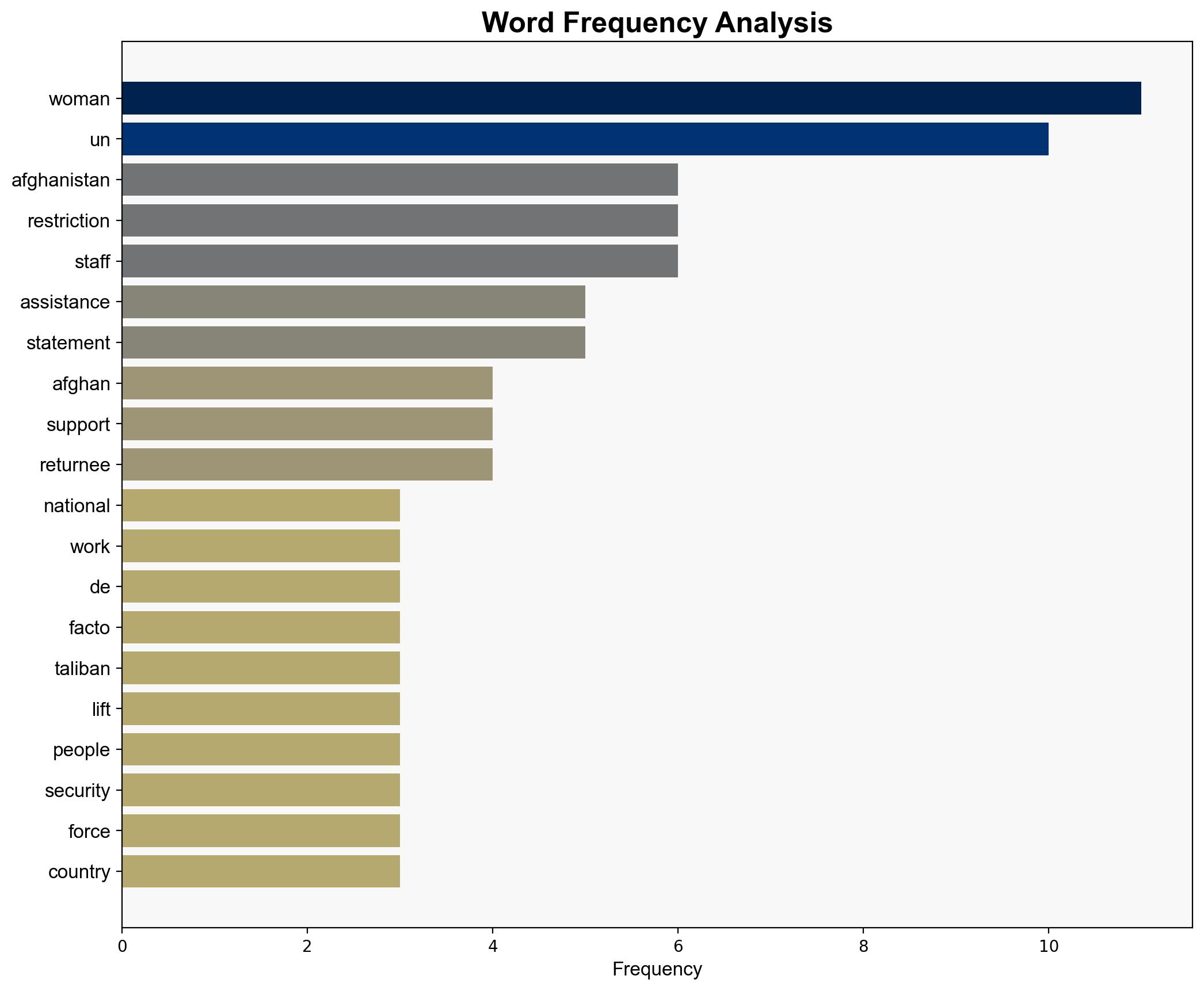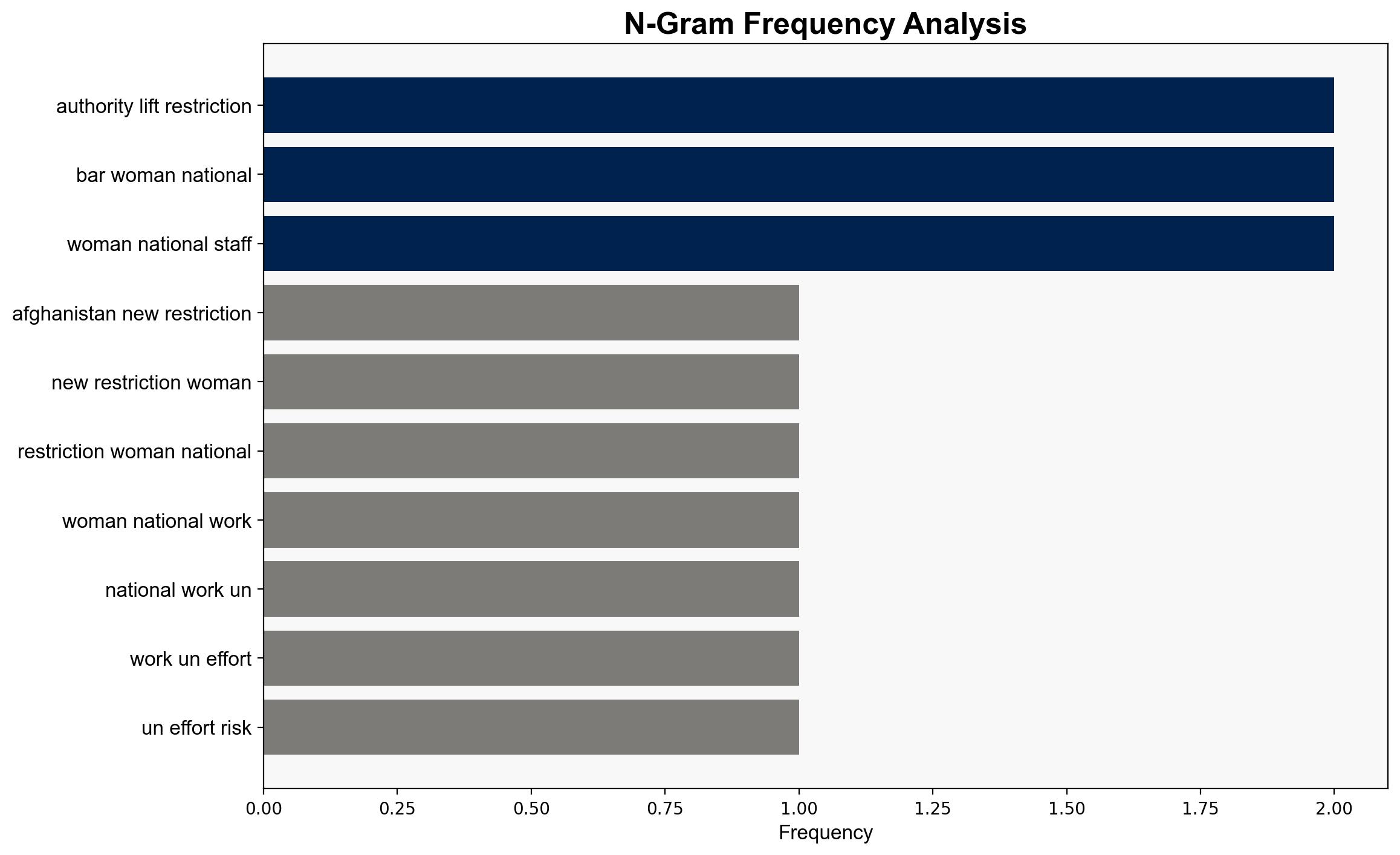Afghanistan New restrictions on women nationals working for UN put aid efforts at risk – Globalsecurity.org
Published on: 2025-09-12
Intelligence Report: Afghanistan New restrictions on women nationals working for UN put aid efforts at risk – Globalsecurity.org
1. BLUF (Bottom Line Up Front)
The imposition of restrictions on Afghan women working for the UN by Taliban authorities poses a significant threat to humanitarian aid efforts in Afghanistan. The most supported hypothesis is that these restrictions are a deliberate attempt by the Taliban to assert control over international aid operations, potentially using them as leverage in negotiations with the international community. Confidence Level: Moderate. Recommended action includes diplomatic engagement with Taliban authorities to negotiate the lifting of restrictions and ensure the continuation of critical aid services.
2. Competing Hypotheses
1. **Hypothesis A**: The Taliban’s restrictions are primarily aimed at reinforcing their ideological stance on women’s roles in society, with secondary impacts on international aid operations being unintended.
2. **Hypothesis B**: The restrictions are a strategic maneuver by the Taliban to exert control over international aid efforts, using them as a bargaining chip in negotiations with the international community.
Using ACH 2.0, Hypothesis B is better supported due to the pattern of previous Taliban actions that align with strategic control rather than purely ideological enforcement. The presence of security forces at UN premises and the timing of these restrictions following international pressure suggest a calculated approach.
3. Key Assumptions and Red Flags
– **Assumptions**: It is assumed that the Taliban leadership is unified in its decision-making and that these actions are not the result of internal factionalism.
– **Red Flags**: The lack of clear communication from the Taliban about their long-term intentions regarding international aid could indicate potential deception or strategic ambiguity.
– **Blind Spots**: There is limited information on the internal dynamics within the Taliban that could influence policy shifts.
4. Implications and Strategic Risks
– **Humanitarian Impact**: The restrictions could severely disrupt aid delivery, exacerbating the humanitarian crisis in Afghanistan.
– **Geopolitical Risks**: This move could strain relations between Afghanistan and international donors, potentially leading to reduced aid and increased isolation.
– **Escalation Scenarios**: Continued restrictions could lead to retaliatory measures by the international community, including sanctions or withdrawal of aid.
5. Recommendations and Outlook
- Engage in diplomatic dialogue with Taliban representatives to negotiate the lifting of restrictions on women aid workers.
- Develop contingency plans to ensure aid delivery through alternative channels if negotiations fail.
- Scenario Projections:
- Best Case: Restrictions are lifted, and aid operations resume fully, stabilizing the humanitarian situation.
- Worst Case: Continued restrictions lead to a humanitarian crisis, with increased mortality and displacement.
- Most Likely: Partial lifting of restrictions with continued challenges in aid delivery.
6. Key Individuals and Entities
– Taliban leadership
– United Nations Assistance Mission in Afghanistan (UNAMA)
– UN Refugee Agency (UNHCR)
7. Thematic Tags
national security threats, humanitarian crisis, geopolitical strategy, regional focus





